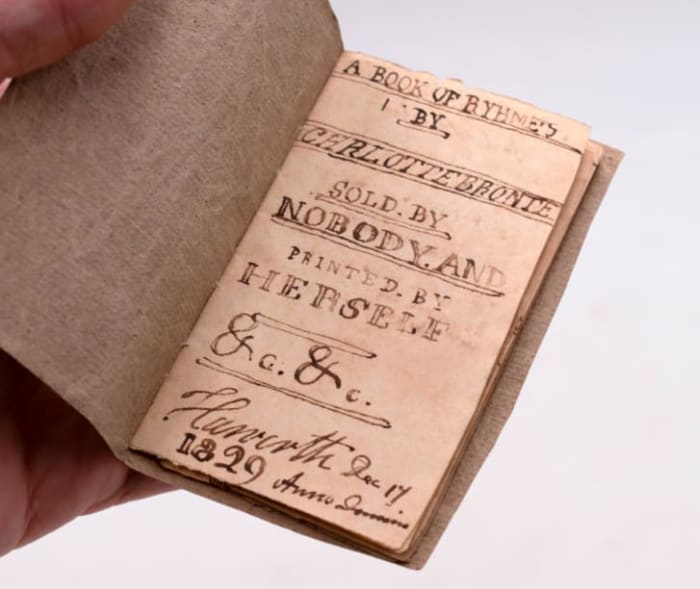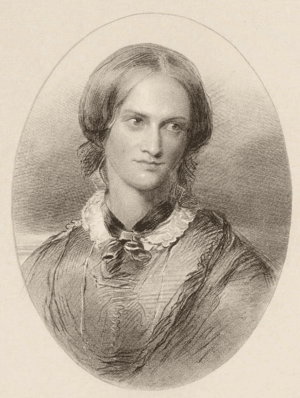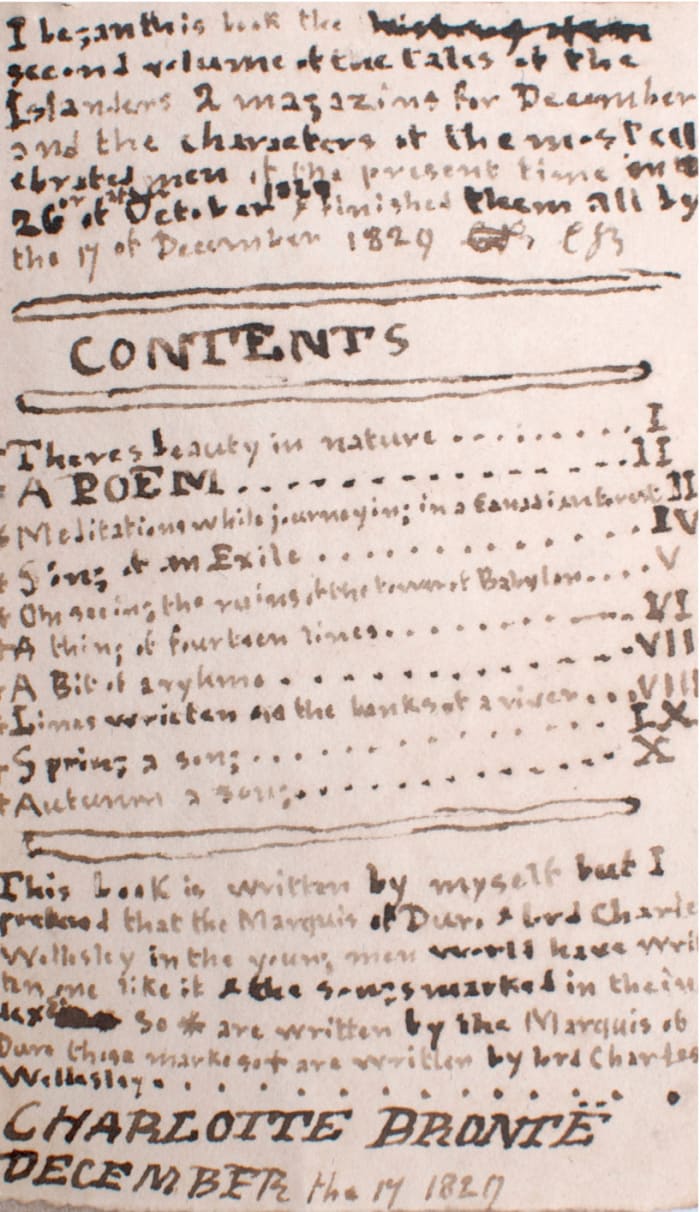Before British novelist and poet Charlotte Brontë wrote her most famous work, Jane Eyre, she self-published numerous miniature books as a teenager to entertain the toy soldiers she and her siblings played with.
Fans and collectors have long desired these miniature books. The last one of more than two dozen written that have remained in private collections and had been thought lost will be revealed on April 21, the opening night of the 62nd annual New York International Antiquarian Book Fair, also the day of Brontë’s birthday. The asking price is $1.25 million.
The volume was last seen at auction in 1916 in New York, where it sold for $520 before disappearing, its whereabouts unknown. It will be on view for the first time in more than a century at the booth of New York book dealer James Cummins Bookseller at the book fair. Cummins is selling the book with Maggs Bros. of London, one of the longest-established antiquarian booksellers in the world.
According to a release by James Cummings Bookseller, the miniature book, A Book of Ryhmes [sic], by Charlotte Bronte, Sold by Nobody, and Printed by Herself, is a collection of ten poems written when Brontë (1816-1855) was 13. The fifteen-page manuscript, smaller than a playing card, is dated December 1829.

Brontë’s tiny book was “sold by nobody and printed by herself.”
Courtesy of James Cummins Bookseller
Stitched together in its original brown paper covers, the book tells tales involving the “sophisticated imaginary world” of Brontë and her siblings. She and her sisters, Emily and Anne, wrote some of the best-loved novels besides Jane Eyre, including Wuthering Heights (1847) and The Tenant of Wildfell Hall (1948).
“They wrote adventure stories, dramas, and verse in hand-made manuscript books filled with tiny handwriting intended to resemble print,” the release says.
“The manuscript was last in the public eye in 1916, and we all love the story of an unexpected survival,” Henry Wessells, an associate at James Cummins Bookseller, told CNN. “Now the owner wishes to ensure that it is preserved for future generations, and, ultimately, made available to scholarship.”
“The following are attempts at rhyming of an inferior nature it must be acknowledged but they are nevertheless my best,” Brontë writes on the manuscript’s title page. And at the end of the book, she asserts creative control over the imaginary world created by herself and siblings.
It’s that whomever takes possession of the book will permit its contents to be recorded for posterity. Previous “tiny books” have wound up in the possession of institutions like the Brontë Parsonage Museum, which purchased one designed to look like a literary magazine for more than $860,000 in 2019.











